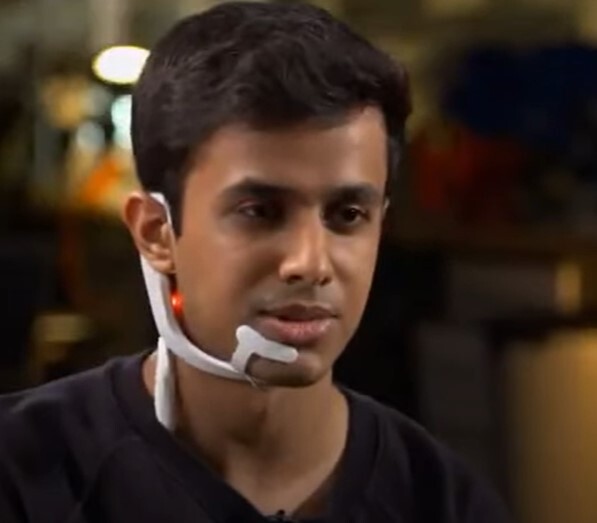MIT student Arnav Kapur has created a revolutionary device called “AlterEgo,” allowing users to search the internet using just their thoughts. The device, worn like a headset, detects signals when the user silently verbalizes words, transmitting this information to machines that search the internet. The answers are then sent back to the user through subtle vibrations in the skull, giving the sensation of an internal voice.
The technology can handle various tasks, such as solving complex math problems or answering trivia questions. A video demonstration showed Kapur easily calculating difficult equations and identifying the largest city in Bulgaria, all without speaking a word. The system allows users to receive information discreetly without disrupting their environment.
One of the primary goals of AlterEgo is to assist people with speech disorders, such as ALS or multiple sclerosis. By using thought-based communication, individuals with such conditions could interact with others and technology more easily. This opens up a new avenue for accessibility in communication technology.
In addition to its practical applications, the project has sparked interest in the potential for human-computer integration. The device could eventually serve as a “second self,” augmenting human cognition and enhancing daily life through seamless interaction with AI and the internet.
Kapur’s invention represents a major leap forward in human-computer interaction, offering a glimpse into a future where technology is more deeply integrated into our lives without being intrusive.




